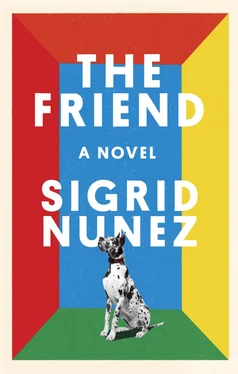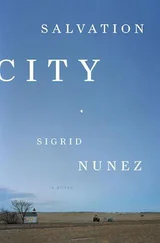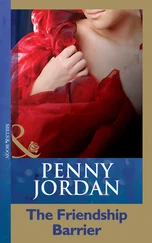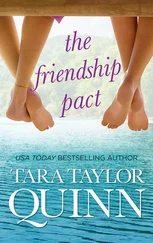No different from when I read the sentences to myself.
I fold my arms on the desk and hide my face in them.
Poke. Woof . I turn my head. Apollo’s gaze is deep, his mismatched ears look sharp as razors. He licks my face and does the cha-cha thing again. He wags his tail, and for the thousandth time I think how frustrating it must be for a dog: the endless trouble of making yourself understood to a human.
I move from chair to couch, Apollo watching, forehead creased. Once I’m settled, he comes and sits down in front of me. Eye to eye. What do dogs think when they see someone cry? Bred to be comforters, they comfort us. But how puzzling human unhappiness must be to them. We who can fill our dishes any time and with as much food as we like, who can go outside whenever we wish, and run free—we who have no master constantly needing to be pleased, or obeyed—WTF?
From the stack of books on the coffee table, I pick up Rilke’s Letters to a Young Poet , an assigned book for one of my courses. I open it and start reading out loud. After a few pages Apollo assumes the half-open-mouthed smile seen all the time on other dogs’ faces but with worrying infrequency on his. As I keep reading he lowers himself to the floor, covering my feet and pressing against my shins. He relaxes his head onto his paws, tipping his eyes at me each time I turn a page. The position of his ears shifts in response to my vocal inflections. I am reminded of my pet rabbit hunched by the stereo speaker. But Apollo never appeared to enjoy the music I played for him, was never soothed—not by music, not by massage—as he appears to be soothed now.
So I read on—as clearly and with as much expression as I would to someone who could understand every word. And I too find it soothing: the lyrical prose in my mouth, the great warm gently heaving weight on my legs and feet.
I know this little book well: ten letters addressed to a student who’d written to ask Rilke for advice when Rilke himself was just twenty-seven years old. Letter eight contains his famous vision of the Beauty and the Beast myth: Perhaps all the dragons in our lives are princesses who are only waiting to see us act, just once, with beauty and courage. Perhaps everything that frightens us is, in its deepest essence, something helpless that wants our love. Words often quoted, or paraphrased, including recently in an epigraph to the film White God : Everything terrible is something that needs our love.
Beware irony, ignore criticism, look to what is simple, study the small and humble things of the world, do what is difficult precisely because it is difficult, do not search for answers but rather love the questions, do not run away from sadness or depression for these might be the very conditions necessary to your work. Seek solitude, above all seek solitude.
I have read Rilke’s advice so often I know it by heart.
When I read the letters for the first time—at around the same age as Rilke when he wrote them—I felt that they had been written as much to me as to their addressee, that all this wonderful advice was meant for any person who wished to become a writer.
But now, though the writing might strike me as more beautiful than ever, I cannot read it without uneasiness. I cannot forget my own students, who do not feel at all what the Young Poet must have felt when he received them in the first decade of the last century. They do not feel what we felt when you assigned this book to us, three-quarters of a century later, along with Rilke’s autobiographical novel, The Notebooks of Malte Laurids Brigge . They do not feel that Rilke is speaking to them. On the contrary: they accuse him of excluding them. They say it’s a lie that writing is a religion requiring the devotion of a priest. They say it’s ridiculous.
When I tell them the myth about Rilke’s death, how it came to be said that the onset of his fatal disease occurred after he pricked his hand on the thorn of a rose—that flower that obsessed him and was such a significant symbol in his work—they groan, and one student can’t stop laughing.
There was a time when young writers—at least the ones we knew—believed that Rilke’s world was eternal. I agree with my students that that world has vanished. But at their age it would not have occurred to me that it could vanish, let alone in my lifetime.
Nothing brings more anxiety than Rilke’s avowal that a person who feels he can live without writing shouldn’t be writing at all. Must I write? is the question he commands the student to ask himself in the most silent hour of your night. If you were forbidden to write, would you die? (Words taken to heart by Lady Gaga, or at least to biceps, which is where she had them, in their original German, tattooed.)
We must love one another or die is how another poet once ended a stanza of what was to become one of the world’s most famous poems. But the author of “September 1, 1939” came to despise that poem and was so bothered by the obvious falsehood in that particular line that, before allowing the poem to be reprinted in an anthology, he insisted it be revised: We must love one another and die. And later still, qualmish still, correction notwithstanding, he renounced the whole poem—irremediably corrupted, to his mind—altogether.
I think of this story about Auden.
I think about how there was a time when you and I believed that writing was the best thing we could ever hope to do with our lives. ( The best vocation in the world . Natalia Ginzburg.)
I think about how you had started telling your students that if there was anything else they could do with their lives instead of becoming writers, any other profession, they should do it.
• • •
It was around this time last year: I was cleaning out closets. From a top shelf I pulled down boxes of photographs and clippings and papers, among them your old letters. I had forgotten how many there were, from those days before email.
It seems that I was often seeking advice.
You want to know what you should write about. You’re afraid that whatever you write will be trivial, or just another version of something that’s already been said. But remember, there is at least one book in you that cannot be written by anyone else but you. My advice is to dig deep and find it.
• • •
He too left trails of weeping women. But of the two types of womanizer, most definitely the kind that loves women. It was only women, Rilke said, that he could talk to. Only women that he could understand and be himself around (so long as he didn’t have to be around too long). And few men have found so many women willing to love, protect, and forgive them.
Once again I come upon his famous definition of love: two solitudes that protect and border and greet each other.
What does that even mean? writes a student in her final paper. It’s just words . It has nothing to do with real life , which is where love actually happens .
The exasperated, hostile tone so often to be found in student papers.
In real life, he could not be a husband to his wife, whom he left about a year after their marriage. He could not be a father to his daughter. Rilke, who found such richness and meaning in the experience of childhood, and who wrote so many beautiful words about children, neglected his only child. Which did not stop her from dedicating her life to his work and his memory. Then, aged seventy-one, she killed herself.
Rilke, who loved dogs and looked hard at them and shared a boundless communion with them. Who once found in the imploring look of an ugly, heavily pregnant stray that he encountered outside a café in Spain everything that probes beyond the solitary soul and goes God knows where—into the future or into that which passeth understanding. He fed her the lump of sugar from his coffee, which, he later wrote, was like reading mass together.
Читать дальше












